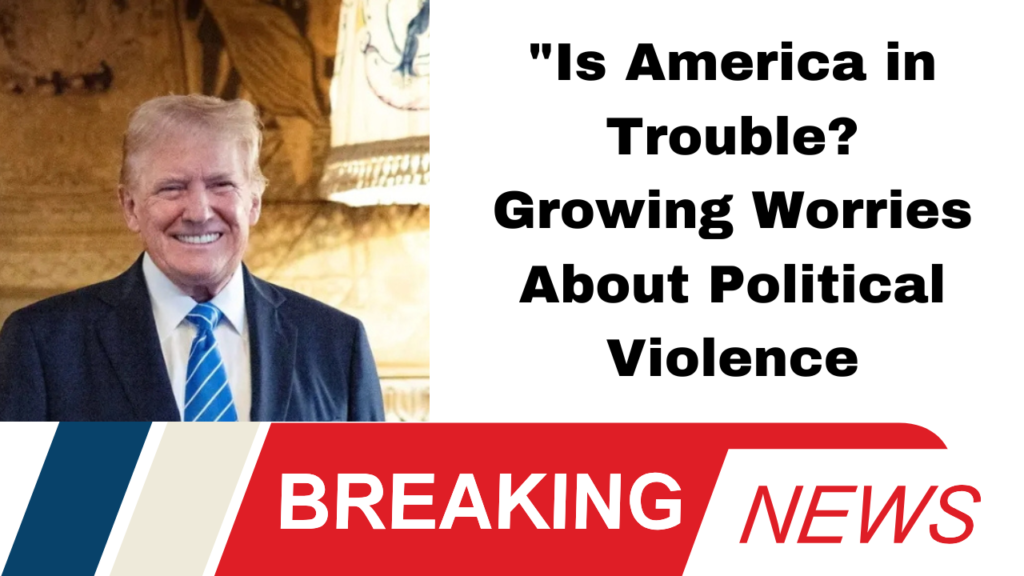In the nine years since Donald J. Trump entered American politics, the perception of the United States on the world stage has shifted dramatically. The nation now grapples with a fractured image, marked by rising political violence and instability. Recent attempts on Trump’s life have heightened fears of potential turmoil and even civil conflict as the presidential election approaches.
British Prime Minister Keir Starmer expressed deep concern following an apparent assassination attempt on Trump at his Florida golf course. He stated, “Violence has no place in politics,” reflecting a widespread apprehension among global leaders. With the election just weeks away, there is growing anxiety about whether American democracy can withstand the pressure.
In Mexico, where election-related violence has surged, President Andrés Manuel López Obrador lamented the situation, stressing that “the path is democracy and peace.” This sentiment resonates in a world already facing conflicts across Europe and the Middle East, where the stability of democratic institutions is under scrutiny.
The events of January 6, 2021, when Trump supporters stormed the Capitol, still loom large in the minds of international observers. French historian Corentin Sellin noted that many in France are now questioning whether the upcoming election will conclude without further violence. He emphasized that the implications of this tumultuous period are far from over.
Trump’s rhetoric often encourages confrontation, as he has repeatedly cast doubt on the legitimacy of election outcomes. His language, filled with calls to “fight,” has contributed to the perception of him as a threat to democracy. Democrats have characterized him as an emerging autocrat, warning that a second term could usher in tyranny.
Authorities have arrested a suspect, Ryan W. Routh, in the Florida incident, revealing a troubling narrative of escalating threats against political figures. German journalist Carsten Luther has noted that warnings of a civil war in the U.S. are becoming increasingly plausible, reflecting a broader pattern of political violence seen in other democracies.
Countries like Slovakia have also faced assassination attempts against political leaders, showcasing that this trend is not limited to the U.S.
Experts are now expressing deep concerns about the polarization within American society and the normalization of violence in political discourse. As feelings of insecurity rise, there is a growing sentiment that political opponents are no longer seen as rivals but as existential threats.
Mario Del Pero, a historian at Sciences Po in Paris, described this dynamic as a degradation of political discourse, worsened by the presence of firearms in the public sphere. Observers worldwide worry that this environment is ripe for conflict, with rising extremist sentiments echoing throughout many Western nations.
The precarious state of American democracy has provoked reactions worldwide, from Russian gloating to European anxieties about their own security. Many developing nations are hesitant to adopt American-style governance, watching instead as the U.S. grapples with its internal strife.
Despite these challenges, there remains a fascination with the resilience of American institutions. While Trump has cited authoritarian tactics from leaders like Hungary’s Viktor Orbán, implementing such measures in the U.S. would be a formidable task.
As the November election draws near, anxiety grows. The resolution of this political crisis ultimately rests with the American people. Lawmaker Andrea Di Giuseppe emphasized that defeating an opponent deemed unfit for leadership must happen through democratic means, not through violence or intimidation.The world watches closely, aware that the stakes have never been higher for the future of American democracy.











More Stories
Bill Maher Critiques Biden’s “Garbage” Comment A Major Gaffe for Democrats
Texas Senate Showdown Cruz vs Allred in a Tight Race
Harris and Walz Rally in Ann Arbor Energizing Young Voters Ahead of Election